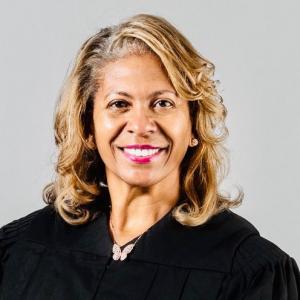It’s official; Elon Musk, the world’s richest man, is now in charge of Twitter after more than six months of one of the most tumultuous, publicized business negotiations in recent memory. US media reported that Musk has fired three top executives, including CEO Parag Agrawal, CFO Ned Segal, and the head of legal policy, trust, and safety Vijaya Gadde. The Washington Post reported that the deal closed on the night of October 27.
He paid a visit to Twitter HQ on October 27, and met with employees. He also did a humorous stunt in which he tweeted a video of himself carrying a sink into the office with the caption “Entering Twitter HQ – let that sink in!” Musk also changed his Twitter bio to read “Chief Twit.” However, if you think the Musk-Twitter saga is over, you’re gravely mistaken. The actual drama has yet to unfold.
Also Read| Elon Musk Twitter deal: A timeline of events
Musk’s primary business interests were until recently in the construction of electric cars, rockets, and underground tunnels. He will now need to solve a brand-new and extremely unique business problem. That is, how to manage a social media site with nearly 400 million users, including highly influential world leaders, journalists, and other public figures, and how to effectively address the problems associated with political speech moderation. So far, Musk has made many suggestions about how he intends to improve Twitter, frequently in the form of tweets.
Here are some of his ideas:
Making Twitter a “free speech” forum
Musk’s most consistent justification for intending to purchase Twitter was that he envisioned it as an unrestricted open digital town square of ideas. He has stated that as long as it is legal, he would allow anyone to say whatever they want on the platform. However, it is unclear exactly how Musk intends to carry out his promise of free speech, or even what he means by it.
Musk, at a Twitter employee meeting in June, said “I think it’s essential to have free speech and to be able to communicate freely.”
Bringing Donald Trump back
US former president Donald Trump’s Twitter account was taken down for tweets about the Capitol riot on January 6, 2021, but Musk has promised to restore it. Musk’s comments about bringing Trump back, combined with his free speech mantra, have made him popular among conservatives who have long felt censored by Twitter and other social media companies.
“I think that was a mistake because it alienated a large part of the country and did not ultimately result in Donald Trump not having a voice. Banning Trump from Twitter didn’t end Trump’s voice. It will amplify it among the right, and that is why it’s morally wrong and flat-out stupid,” Musk told the Financial Times in May.
Eliminating bots
Musk has pledged to address Twitter’s “bots” problem, which refers to the large number of accounts that frequently post spam or fake content like phishing and cryptocurrency get-rich-quick schemes. Despite Twitter’s insistence that they make up less than 5% of all accounts, bots are a significant known problem.
Also Read| Elon Musk completes $44 billion Twitter acquisition
As his legal justification for initially pulling out of the deal, Musk has claimed that he believes that percentage to be significantly higher, at least 20%. According to independent research, even though there may only be 5% of Twitter users who use bots, their influence on overall conversation can be as high as 20%.
Transforming Twitter into a “superapp” X
The Tesla CEO previously stated that he wanted to maximize Twitter’s potential by transforming it into a “superapp” that was much more than just a social media app. This is Musk’s most ambitious plan to date and the closest thing he has to a viable business plan. At the moment, advertising accounts for 90% of Twitter’s income. Musk claimed he wanted to reduce Twitter’s reliance on advertising while increasing revenue from subscriptions (which Twitter already offers), as well as perhaps from these superapp transactions.
Musk is likely to face competition as the superapp concept has also been pursued by Snap’s Evan Spiegel and Uber. It may also be more difficult to create a true superapp in the United States than in China, where antitrust regulations prevent major communication platforms from establishing cross-industry monopolies.






